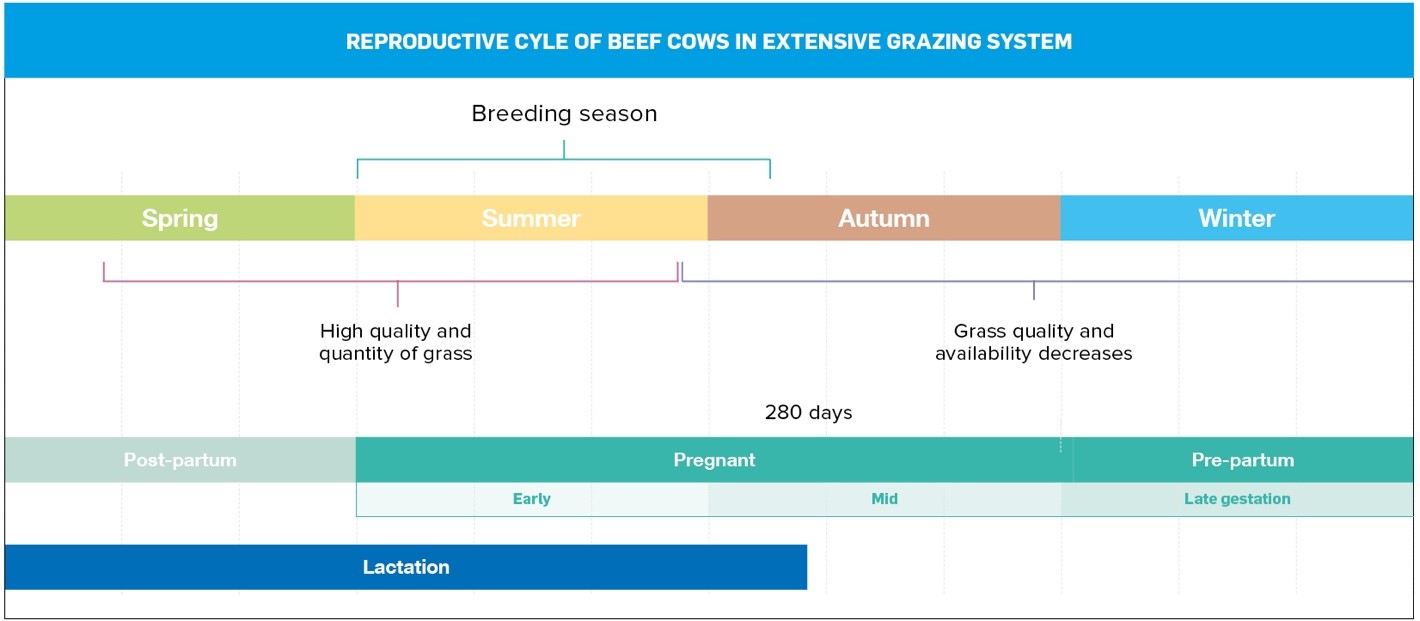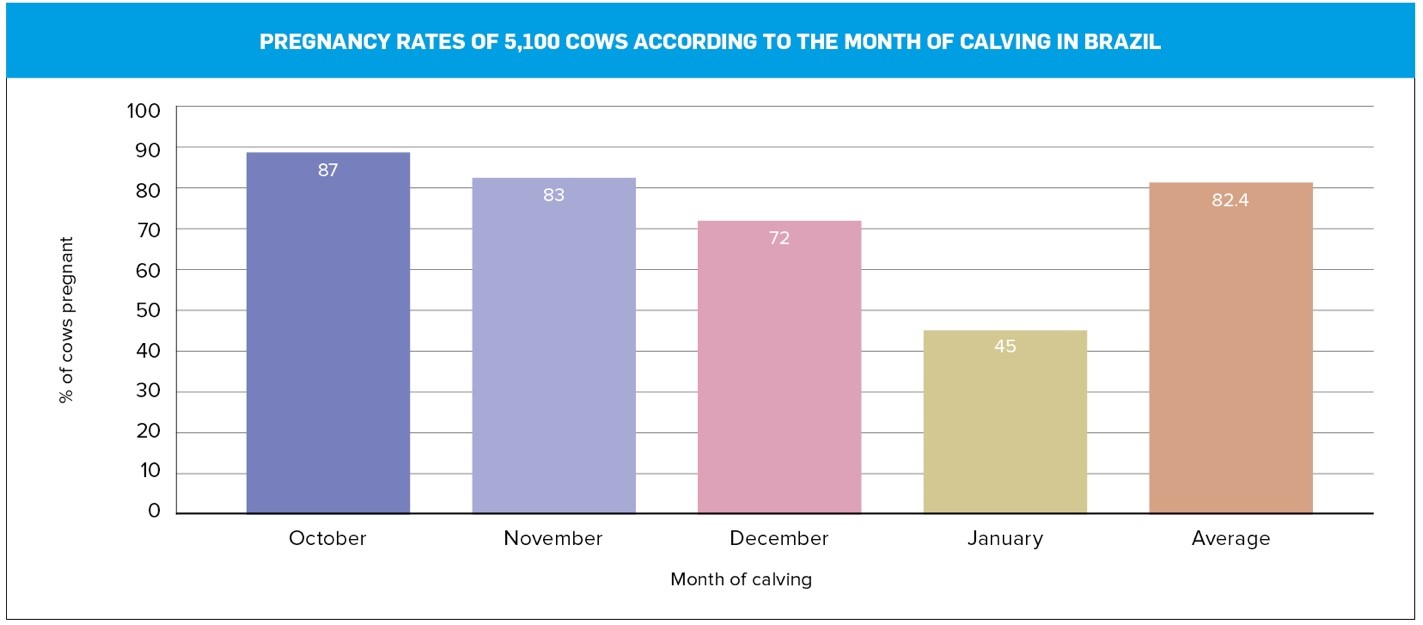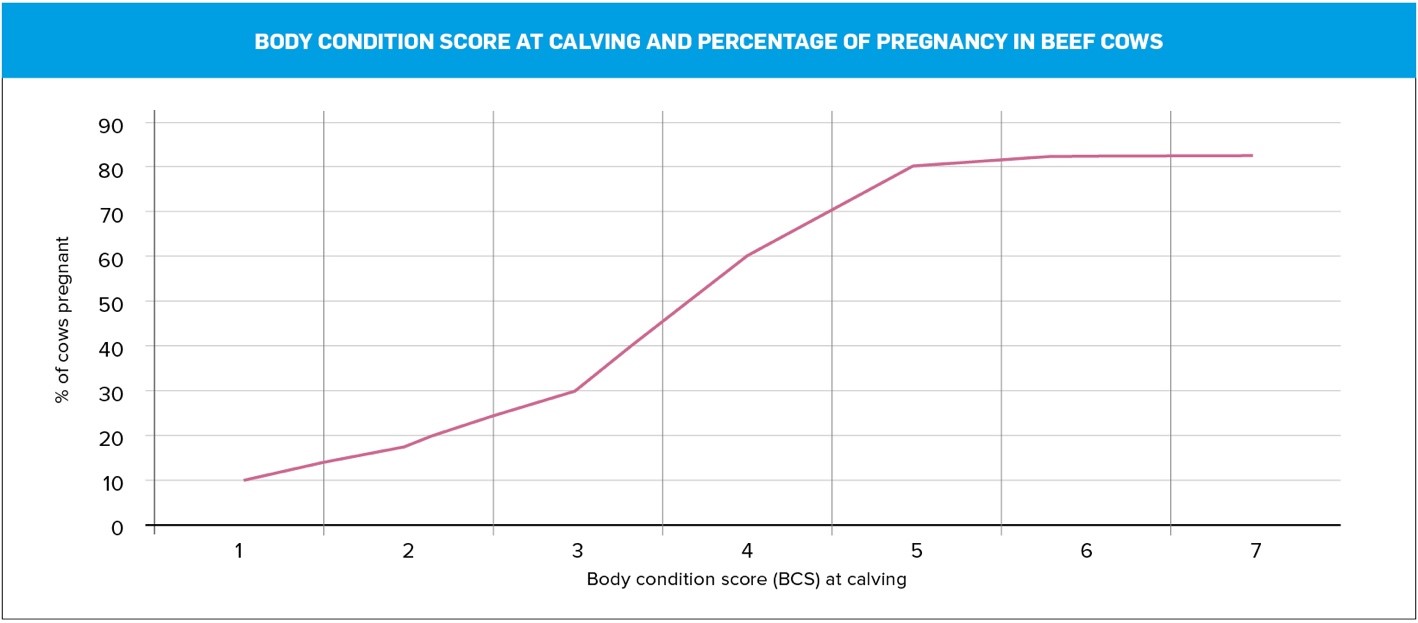How reproductive efficiency can help optimise your results
The secret to a productive herd is fertility, along with growing and weaning your calves. As a farmer, the gold standard is a rate of about one calf per cow per year. But that can’t be done without improving your cows’ fertility. This, in turn, hinges on factors such as nutrition, genetics, health, management, percentage of bulls and breeding management. Read on to find out more about how understanding fertility can improve your results.

Understanding reproductive efficiency
Reproductive efficiency is measured as the number of calves per 100 mother cows per year. Because the cow’s gestation period is 280 days, achieving the gold standard ratio of 1 means the cow needs to get pregnant within 85 days of the postpartum period.
Under this system, with a defined breeding season, you can delay the cow’s new conception within certain limits. You need to plan the breeding season to fall within a period of optimal grass production.
How to optimise your reproduction cycle
Commercial farms often have extensive systems in place to manage their cows for long grazing periods. This means grass needs to be as plentiful and high-quality as possible.
Undernutrition is a common problem under extensive systems since there’s usually only enough grass to meet the cow’s daily requirements for three or four months a year. If your cows aren’t getting enough high-quality grass, you won’t be able to optimise your reproduction cycle and foetal development.
Early pregnancy (1-3 months pregnant)
The early pregnancy phase is essential for the placenta’s development and the early stages of foetal development. Cows are lactating during this period and normally ingest enough high-quality grass (see Figure) to meet their nutritional needs. But if the availability and quality of grass are insufficient during this period, you’ll need to adjust the supplementation.

Mid pregnancy (weaning)
This phase occurs from autumn to winter, and your cows have lower nutritional requirements because they’ve finished lactation. The most important thing is for them to accumulate body reserves to maintain a body condition score (BCS) of at least 5 (from 1 to 9). However, cows often don’t have proper nutritional management (grass and supplement) during this phase and their BCS suffers as a result.
Pre-partum (last 3 months of pregnancy)
This period is known for high foetal growth. When cows and heifers have a low BCS (< 5), calves are less developed at birth and the mother takes longer to start ovulating again after giving birth.
Postpartum
This period is critical, since this is when lactation begins. As a result, your cows and heifers need more energy, protein, minerals and vitamins.
The lactation period begins after birth, and your cows should ovulate and become pregnant again within 85 days of calving. This period usually happens in spring/summer, when plants grow quickly and the fresh grass has good nutritional quality. This is why the calving month has a big impact on the pregnancy rate (see Graph). Cows that calved “earlier in the season” are more likely to become pregnant during the breeding season.

No substitute for optimal nutrition
Aside from the time of calving, the BCS is one of the most important factors of the fertility rate. To reach their full reproductive potential, cows need a BCS of at least 5 (see Graph). The right nutrition after calving offers many advantages for cows, allowing them to:
- Gain weight and recover their BCS;
- Start to ovulate during the start of lactation; and
- Get pregnant again within 85 days of calving.

Are you ready to unlock better results?
Improving fertility is a surefire way to make your herd more productive. The key is to use this knowledge of the reproductive cycle to plan the process out and make sure your cows are getting enough high-quality grass and supplement. Our proven ReproBeef Plan brings these insights together to help you optimise your reproductive efficiency and, in turn, your earnings.
Learn more about ReproBeef or contact a member of the De Heus team for more information.

